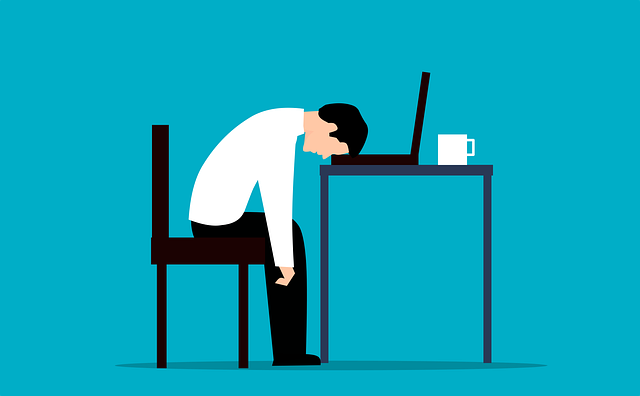Military service can leave a lasting impact on the mental well-being of veterans, with depression and anxiety being two of the most prevalent and debilitating conditions they face. The challenges experienced during active duty, such as combat exposure, separation from loved ones, and the stress of life-threatening situations, can contribute to the development of these mental health disorders.
Depression and anxiety often manifest as invisible wounds, silently plaguing veterans even after they return home. These conditions can significantly impair their quality of life and hinder their ability to reintegrate into civilian society. Understanding the unique factors that contribute to depression and anxiety among veterans is crucial to providing appropriate support and treatment.
What are the causes of depression and anxiety among veterans?
The mental health challenges faced by veterans, specifically depression and anxiety, are of significant concern. These mental health issues can have profound and long-lasting effects on the well-being of those who have served in the military. It is important to understand the causes behind these conditions to effectively address and support veterans struggling with depression and anxiety.
Traumatic experiences during military service
One of the primary causes of depression and anxiety among veterans is their exposure to traumatic events during their service. Combat situations, witnessing violence, and experiencing life-threatening situations can leave deep emotional scars. The stress, fear, and intense emotions associated with these events can lead to the development of mental health disorders.
Post-traumatic stress disorder (PTSD)
Post-traumatic stress disorder is highly prevalent among veterans and often co-occurs with depression and anxiety. PTSD is a complex condition that arises as a result of experiencing or witnessing a traumatic event. The symptoms of PTSD, such as intrusive memories, nightmares, hyperarousal, and avoidance behavior, can significantly contribute to the development of depression and anxiety.
Transition challenges
Transitioning from military to civilian life can be a difficult and stressful process for veterans. They may face challenges such as finding employment, adjusting to a different lifestyle, establishing a support network, and coping with changes in identity and purpose. These transitional stressors can increase the risk of developing depression and anxiety.
Physical injuries and chronic pain
Physical injuries sustained during military service can also contribute to the development or exacerbation of mental health conditions. Chronic pain resulting from combat-related injuries can be physically and emotionally distressing, leading to increased stress, reduced quality of life, and a heightened risk of depression and anxiety.
Social isolation and a lack of support
The isolation experienced by veterans, especially those who have difficulty reconnecting with their civilian communities, can have a significant impact on their mental well-being. Feelings of loneliness, a lack of social support, and difficulties in expressing their experiences and emotions can contribute to the development of depression and anxiety.
Pre-existing vulnerabilities
While military service can be a triggering factor, it is important to acknowledge that some veterans may already have pre-existing vulnerabilities to mental health conditions. These vulnerabilities can include a history of childhood trauma, a family history of mental illness, or a personal predisposition to anxiety or depression. Military service can exacerbate these underlying factors, increasing the risk of mental health issues.
What are the signs and symptoms of depression and anxiety among veterans?
Recognizing the signs and symptoms is crucial for identifying and addressing these challenges. Here are the common symptoms or signs of depression and anxiety among veterans:
Depression Symptoms
- Persistent sadness or a depressed mood that lasts for an extended period.
- Loss of interest or pleasure in activities that were once enjoyable.
- Significant changes in appetite, leading to weight loss or weight gain.
- Disturbances in sleep patterns, such as insomnia or excessive sleep.
- Fatigue or loss of energy, feeling lethargic, or lacking motivation
- Feelings of worthlessness, guilt, or self-blame.
- Difficulty concentrating, making decisions, or experiencing cognitive fog.
- Recurring thoughts of death, suicidal ideation, or suicide attempts
- Withdrawal from social activities, hobbies, or relationships.
- Physical symptoms such as unexplained aches, headaches, or digestive issues.
Anxiety Symptoms
- Excessive worrying or feeling restless most of the time.
- Intense fear or feeling on edge, with a constant sense of impending danger.
- Irritability or frequent agitation, easily getting frustrated or angered
- Difficulty concentrating or experiencing racing thoughts.
- Sleep disturbances, including trouble falling asleep or staying asleep.
- Physical manifestations of anxiety, such as a rapid heartbeat, sweating, or trembling.
- Avoidance of situations that trigger anxiety, leading to social withdrawal or isolation
- Panic attacks are characterized by sudden and intense feelings of fear or impending doom.
- Overwhelming feelings of unease, panic, or a sense of losing control
- Hypervigilance or an exaggerated startle response.
These symptoms may vary in severity and overlap. Some veterans may experience both depression and anxiety simultaneously, while others may experience symptoms more prominently in one area. These symptoms can significantly impact daily functioning, relationships, and overall well-being.
What are the treatments for depression and anxiety among veterans?
Addressing the mental health challenges of depression and anxiety among veterans requires a comprehensive approach that combines various treatment modalities. Several effective treatment options are available to help veterans manage and overcome these conditions. Here are some of the treatments commonly utilized:
Psychotherapy
Psychotherapy, also known as talk therapy, is a fundamental treatment approach for depression and anxiety among veterans. Different forms of psychotherapy can be effective, including:
- Cognitive-behavioral therapy (CBT): CBT helps veterans identify negative thought patterns and develop coping strategies. It focuses on challenging and replacing negative beliefs with healthier, more positive ones.
- Exposure therapy: This therapy is particularly useful for veterans with PTSD. It involves gradually exposing the individual to trauma-related triggers in a safe and controlled environment, helping them reduce their fear response and regain control.
- Eye Movement Desensitization and Reprocessing (EMDR): EMDR is an evidence-based therapy that specifically targets PTSD. It involves guided eye movements or other forms of bilateral stimulation while processing traumatic memories to reduce distressing symptoms.
Oral Treatments
Oral treatments can play a vital role in managing depression and anxiety among veterans. Antidepressants and anti-anxiety oral treatments may be prescribed by healthcare professionals to alleviate symptoms and help restore balance to brain chemistry. It is essential to work closely with a healthcare provider to determine the most appropriate type of oral treatment, dosage, and potential side effects.
Peer Support Programs
Peer support programs provide veterans with the opportunity to connect with others who have had similar experiences. These programs can be instrumental in reducing feelings of isolation, fostering a sense of belonging, and offering a support network. Support groups, online forums, and community organizations specifically designed for veterans can provide a safe space for sharing experiences and finding solace.
Complementary and Alternative Therapies
Complementary and alternative therapies can serve as adjunctive treatments, supporting traditional therapies. Some approaches that have shown promise in improving mental health among veterans include:
- Mindfulness and meditation: Practicing mindfulness can help veterans manage stress, reduce anxiety, and promote overall well-being.
- Yoga and physical exercise: Engaging in physical activity, such as yoga or regular exercise, can positively impact mental health by reducing symptoms of depression and anxiety, improving sleep, and increasing overall resilience.
- Art therapy and creative outlets: Expressive therapies, such as art therapy, music therapy, or creative writing, can provide a channel for veterans to explore and process their emotions in a non-verbal and creative way.
Veteran-Specific Support Services
Veteran-specific support services, such as those provided by the Veterans Affairs (VA) healthcare system, offer specialized mental health care. VA medical centers and Vet Centers provide a range of services, including individual counseling, group therapy, specialized PTSD programs, and access to mental health professionals with expertise in veteran issues.
Reminder
Depression and anxiety pose significant challenges for veterans, emerging as a result of the multifaceted experiences they undergo during military service. To empower veterans in their path towards recovery and help them achieve fulfilling lives beyond the battlefield, it is essential to heighten awareness, offer comprehensive support services, and implement evidence-based treatments. Supporting the mental health journey of veterans is not only a moral imperative but also an investment in the well-being of those who have selflessly dedicated themselves to serving our nation.
If you know a veteran who is struggling with depression or anxiety, visit Mindshift Psychological Services. Check out their website to learn more about their treatment programs. You may contact them at (714) 584-9700 to schedule an appointment.



